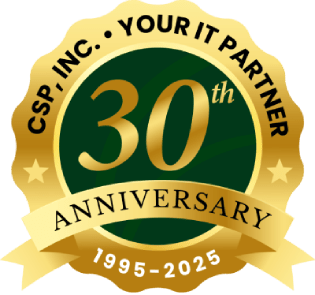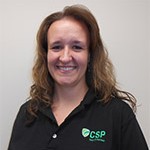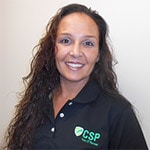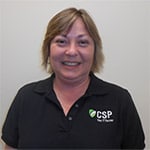1310 Nowell Road
Raleigh, NC 27607
1310 Nowell Road
Raleigh, NC 27607
Existing CSP Client: (919) 424-2060
SALES: (919) 420-3231
The Internet can be a scary place. Between phishing, malware, and a seemingly never-ending list of scams, the dangers are many. But there’s an even a darker corner of the web where few people dare to venture that can have a wide-reaching and severely damaging effect on your business: the dark web.

The Internet can be a scary place. Between phishing, malware, and a seemingly never-ending list of scams, the dangers are many. But there’s an even a darker corner of the web where few people dare to venture that can have a wide-reaching and severely damaging effect on your business: the dark web.
The dark web is a small part of the much larger “deep web” – the common name for an extensive collection of websites that aren’t accessible through normal Internet browsers. These websites are hidden from the everyday Internet — or Clearnet — users through the use of overlay networks. They’re built on the framework of networks that already exist, and there are a lot of them. In fact, the Deep Web makes up the majority of the information online. Which, when you consider how vast the corner of the Internet you frequent is, is nothing short of terrifying.
This unseen part of the Internet is a perfect place for less than scrupulous individuals to connect, network, and share tools, tips, and information. And it should go without saying that whatever their up to on these sites is nothing good.
Personal information such as school and medical records, bank statements, and private emails are all part of the immense Deep Web. To gain access to this information, you must be able to access an overlay network using specialized software and passwords. This is a good thing, because it keeps sensitive information safe, and prevents search engines from accessing and indexing it.
The added security of the Deep Web makes it attractive for those who want their online activities to remain anonymous. Unlike the Deep Web, which prevents outsiders from accessing information, the owners of dark websites allow anyone with the right browser to access their sites. One of the most popular of these is The Onion Browser, more commonly known as Tor.
The dark web is like “The Wild West” of the Internet. It’s an area beyond the reach of law enforcement, hence the complete lack regulations or protection. Although not everyone who uses the dark web engages in illicit activities – it has a history of being a platform for political dissidents and corporate whistleblowers – many visitors are there for less than upstanding reasons.
Cybercrime costs US businesses billions of dollars each year. The majority of information hackers steal from businesses ends up on the dark web for sale to identity thieves and corporate spies.
But, the real danger is that it provides a communication and educational training ground for hackers and would-be hackers. Although the competition among different hacking groups is fierce, there’s still a willingness among cyber criminals to share techniques and assist one another.
It’s this access to the “tools of the trade” and the guidance required to pull off successful hacks, attacks, and scams that makes the dark web so dangerous to your business. Anyone with the time and inclination to learn how to steal valuable data from your business can check out an online tutorial or two, pay for some basic hacking software from one of these marketplaces, and set their sights on you.
While they might not be the stories that make national headlines, small and mid-sized businesses are targeted every day by cybercriminals looking to make a fast buck.
Be Proactive – Protect Your Business.
When a news story comes out about a large corporate hack, many of my clients contact me to learn how they can better protect their businesses. The advice I give centers around educating their employees about the dangers of online crime and developing company procedures to prevent it from happening. A few of the actionable suggestions I offer include:
Protect your business by reaching out to the CSP Inc. team: (919) 424-2000 or info@cspinc.com.

Always at your service to provide the highest level of quality support to our customers.

Anthony Firth Client Engineer

“I’m passionate about building and fostering relationships, and finding solutions for success.”

Michael Koenig Client Account Manager

“I help clients stabilize and grow their IT infrastructure so they can focus on growing their core business.”

Josh Wilshire Systems Engineer Team Lead

“I strive to provide the highest level of quality service to our customers.”

Tommy Williams Sr. Hardware Engineer

“I’m driven by the steadfast belief that technology must serve as a business enabler. This mantra has driven 21
Years of successful partnerships.”

Stephen Riddick VP Sales & Marketing

“CSP doesn’t succeed unless your company succeeds.”

Stephen Allen Inventory Manager

“Through my intuition and genuine concern to help others I have built long-lasting relationships with our customers, co-workers and business partners.”

Scott Forbes VP Support Services

“Every day, I work with clients to help plan the future of their businesses.”

Michael Bowman vCIO

“Your IT problems become our IT solutions.”

Mark McLemore Project Engineer

“Managing internal and external operations to ensure that CSP provides quality and reliable customer service .”

Margie Figueroa Business Manager

“Providing quality internal and externals financial support to our customers and accounting support to CSP.”

Katie Steiglitz Accounting Administrator

“Some call me the CEO. I call myself the Cheerleader for an awesome team!”

William B. Riddick Founder & CEO

“CSP is here to assist you with your IT needs.”

Beth Wylie Inside Sales Manager




On What Questions You Need To Ask Before Signing Any Agreement.
"*" indicates required fields

Raleigh IT Support Company and IT Services Provider | CSP Inc.
1310 Nowell Rd,
Raleigh, NC 27607
Existing CSP Client: (919) 424-2060
SALES: (919) 420-3231
Receive email updates and informative marketing materials by subscribing to our newsletter.
"*" indicates required fields